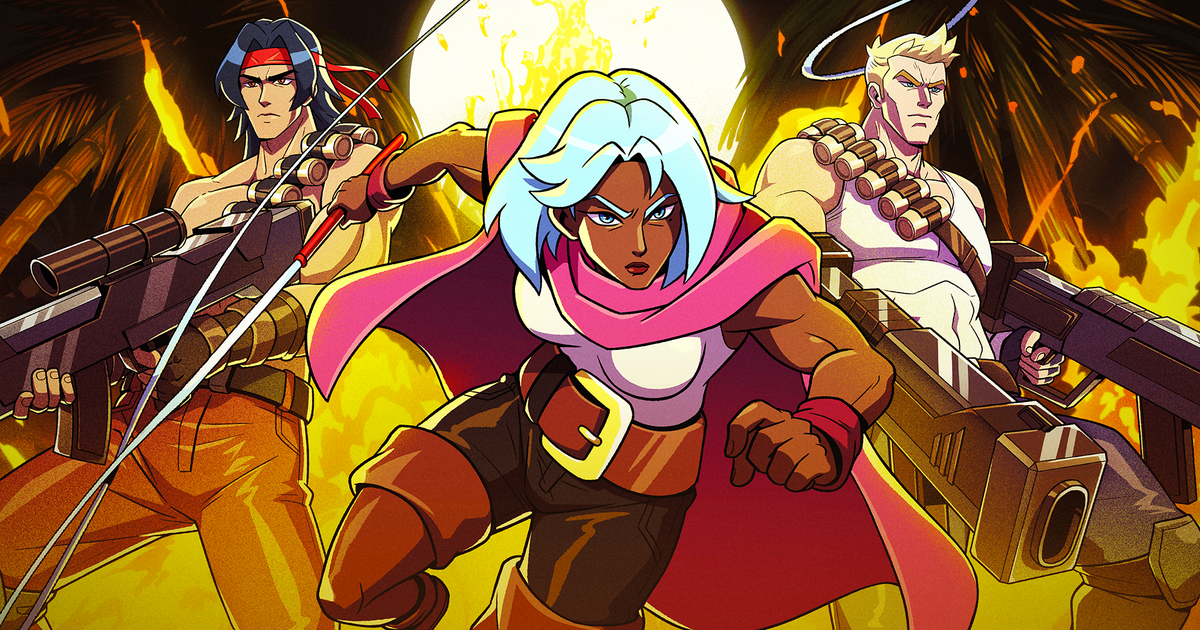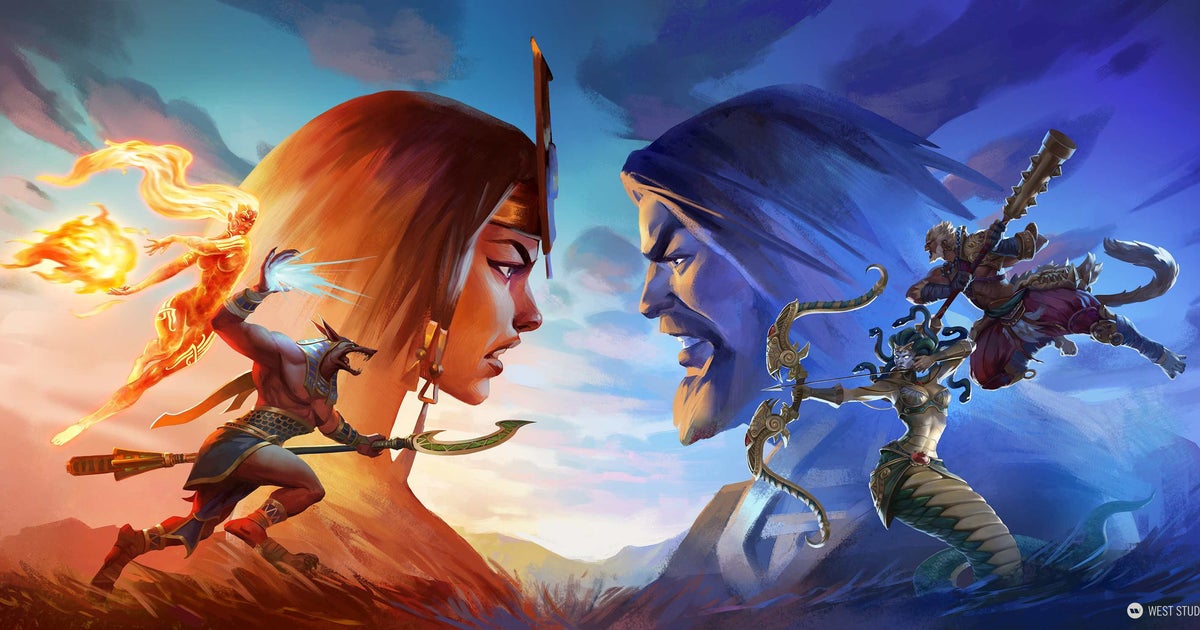Like spotting the first sign of shore after years adrift, Skull and Bones has finally, actually found its way to launch. Six separate delays and several different concepts that were forced to walk the plank might’ve made you understandably apprehensive about Ubisoft’s long-brewing pirate game, but I’ve already found a yo-ho-whole lot to be excited about after spending nearly 30 hours with its surprisingly unconstrained open beta this past weekend. The 17th-century Indian Ocean works well as avast open world to be explored and plundered, the RPG mechanics are (briny) deep with opportunities for buildcrafting alongside your fellow scurvy dogs, and the naval combat you’ll spend bucca-nearly all your time on the high seas engaging with is tactical and consistently entertaining. Aside from the expected instability one usually encounters with a beta for an online game, the only red flags so far are the lackluster story and a list of endgame activities that feel like they could become repetitive in short oar-der. I won’t be able to complete my voyage until the full version sets sail later this week, but I’m already excited to sea more.
Skull and Bones is fairly unique in the grand scheme of open-world RPGs in that it gives you direct control of a ship and lets you sail the ocean as you pillage ports and send enemy ships to Davy Jones’ locker in search of loot and infamy during the Golden Age of Piracy. Alone or alongside the ships of up to two friends as a fleet, you’ll gather resources and complete action-packed heists to feed your greed and climb Jacob’s progression ladder as you power up your vessel, which is usually a blast. Though it might be tempting to compare this live-service, pirate-filled RPG to Sea of Thieves, they really couldn’t be more different – Skull and Bones focuses entirely on wonderfully intricate maritime gameplay and commodities/economy simulation, not running around on foot as you get into sword fights and eat unpeeled bananas stem-first.
While it’s a bit odd at first that you only ever get to explore the world by controlling your ship (aside from brief intermissions at the social hub), it took just a few hours for me to not feel like I was missing out on much. That’s primarily thanks to how good the ship-to-ship combat quickly becomes. After a fairly underwhelming opening meant to help you get your sea legs with the glorified hunk of driftwood as a starting ship, things really open up. Once you start to upgrade and customize your vessel to fit your playstyle, then tackle some of the more challenging areas and activities that require you to seriously up your game, Ubisoft’s strict focus on naval fights works a lot better than I thought it would.
Skull and Bones appears to have only the faintest whiff of a story, which has so far amounted to a handful of conversations with pirate legend John Scurlock (who keeps insisting I should kill the French). That’s not to say there aren’t a few likable rogues and skallywags to meet along the way – like Yanita, who introduces you to the world of black market trading with all the enthusiasm and pomp of a circus ringmaster – but NPCs are little more than vendors and quest dispensers with no substantial story connecting them. It’s especially weird that meatier pieces of the story seem to have been lopped off since I saw them in the closed beta last year, like an early part where you meet a dying pirate named Abel Rassler, who you now just find dead instead. My guess is these changes were made to keep you out on the ocean waves as long as possible rather than lingering in the social spaces, and I certainly found myself spending a lot more time doing just that – which isn’t such a bad thing. Still, I expect my pirate games to have a bit of drama, infighting, and betrayal, and it doesn’t look like Skull and Bones will deliver on that front based on this initial taste I’ve gotten. There’s still a chance more of that could get turned on when the final version is out, but I wouldn’t bet on it.
Instead, your attention is directed toward the compelling treadmill of blasting through increasingly lethal enemy ships and then using your loot to craft better instruments of piracy. Ship-to-ship PvE combat is the star of the show, and it requires strategy, cooperation with other player-controlled vessels, and good aim to pull off at higher levels. For example, when taking on powerful fleets found in later areas, you might want to reconfigure your ship to a tank build optimized for withstanding cannonfire and dealing close-range damage, while your friends focus on DPS or even support options capable of healing allies by peppering them with nonsensically medicinal cannonballs. (How would that even work?) It’s also awesome how great naval combat and sailing the open ocean look, as a lot of effort clearly went into giving elements like waves and cannonfire an extra layer of visual polish – although, on the flip side, NPCs often look animatronic, with dead eyes and robotic mouths.
Crafting new ships and trying out different builds is extremely compelling. Just when I thought I’d built my ideal vessel, I’d see a special cannon or a unique piece of ship armor I just couldn’t live without, then gleefully jump through surprisingly rewarding hoops by attacking certain factions and seeking out rare resources to buy a schematic and craft it. Taking those new toys out to lay the beatdown on any blaggards foolish enough to oppose me is especially thrilling. For example, I spent hours and tons of resources to craft my first mortar, which unlocked the ability to rain fire from the sky on my enemies like I was calling in an airstrike. Sure, doing so forced me to spend every last scrap of my ill-gotten riches, but can you really put a price on turning your foes into pulled pork?
Once you’ve established yourself on the high seas a bit, you’ll also begin to understand both trade routes and the supply and demand they influence in different parts of the world. You’ll even gain access to the black market via The Helm, a mechanic that allows you to build and manage underworld businesses by creating and delivering embargoed goods, like opium. This opens up a whole new way to line your pockets on your quest, as you can ferry legitimate and illegitimate goods to and fro, buying low in one place and selling high in another. Later on you can even conquer areas and turn them into automated revenue generators to help you obtain the most powerful equipment, and I’m excited to push the limits of this economy system in the final version.
Though I went pretty hard during this latest beta and even got a sneak peek of the endgame activities last month, I still have plenty of questions about what else Skull and Bones has in store beyond what I played this past weekend. I still don’t know if there are any dedicated PvP options or other activities beyond the single Legendary Heist public event in the beta, which sends you to take down an NPC ship, then fight over the loot with anyone else in the area. And I still have no idea how the planned microtransactions and season model fit into things, since they’ve not been present in any version of Skull and Bones I’ve seen so far. But I have really enjoyed what I’ve played, and since progress in the beta carries over to launch, I’m looking forward to setting sail right where I left off and becoming a proper pirate legend later this week.


